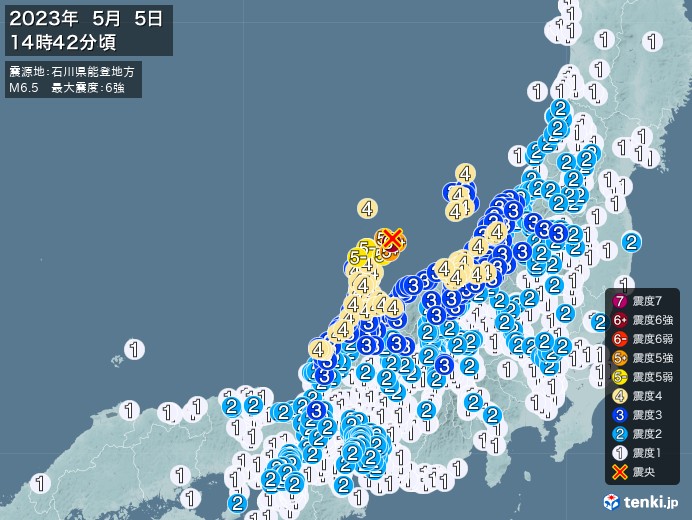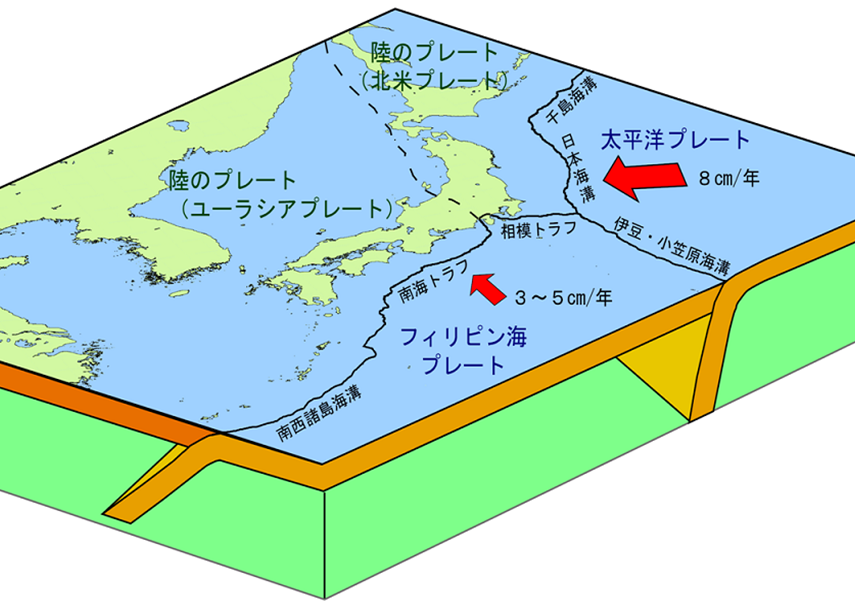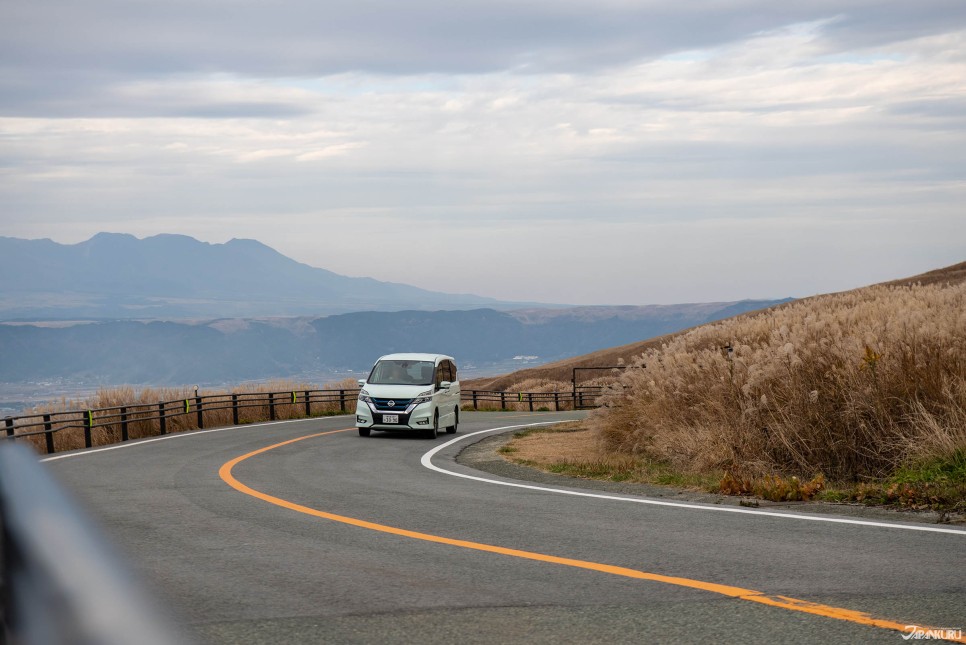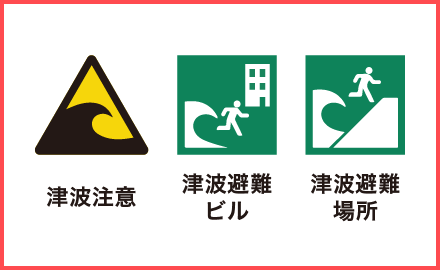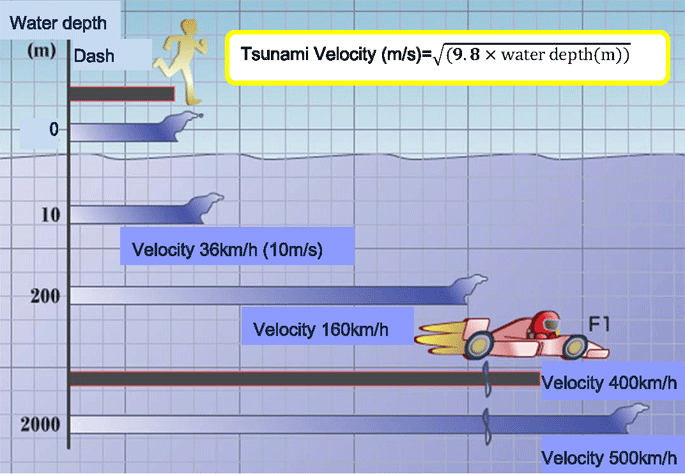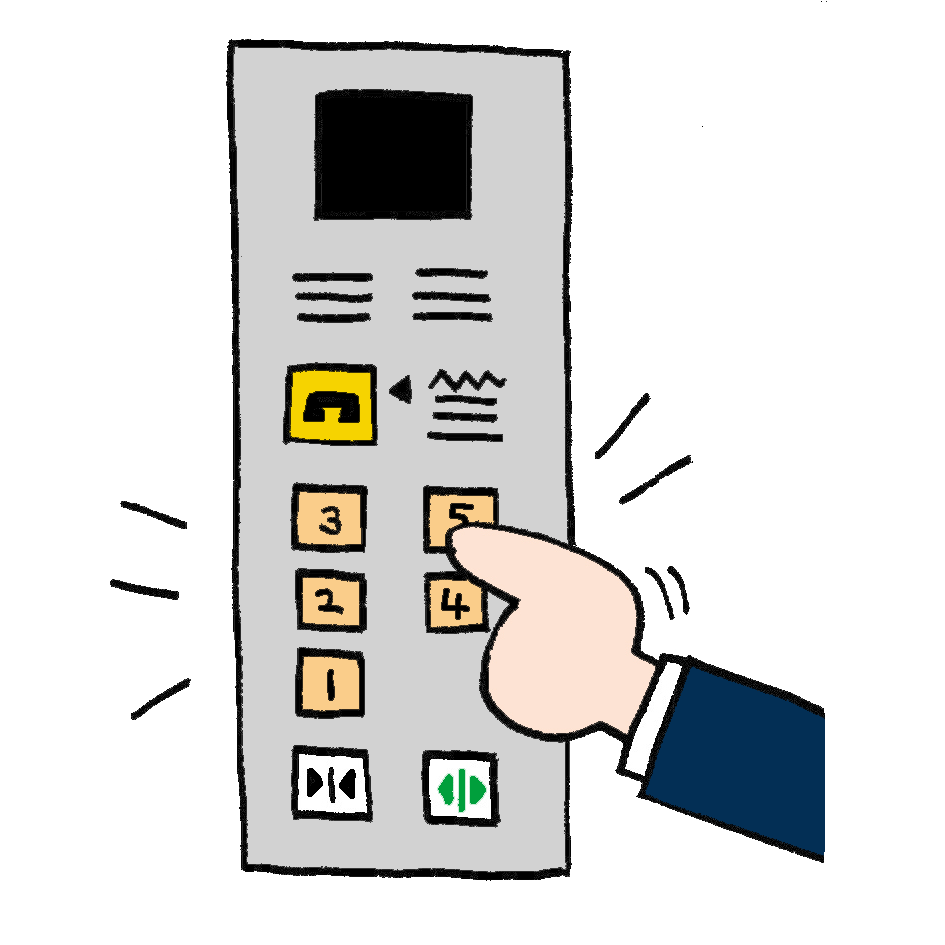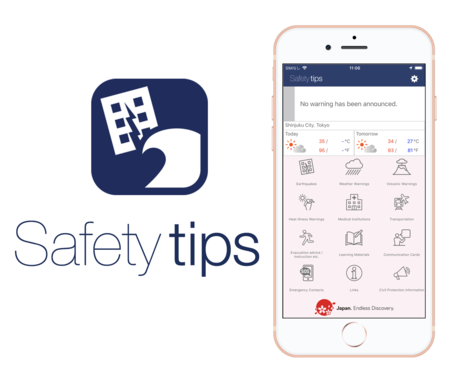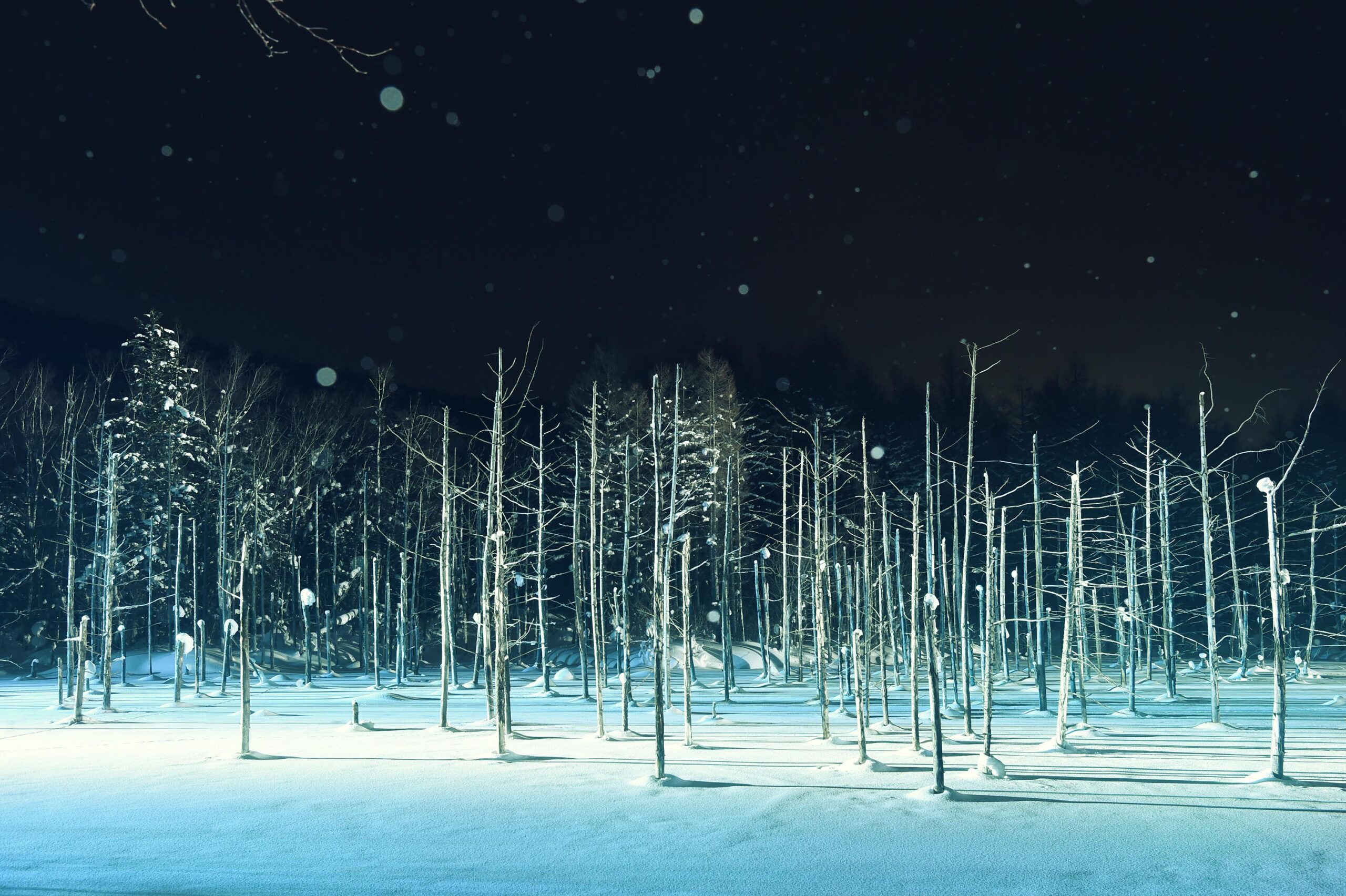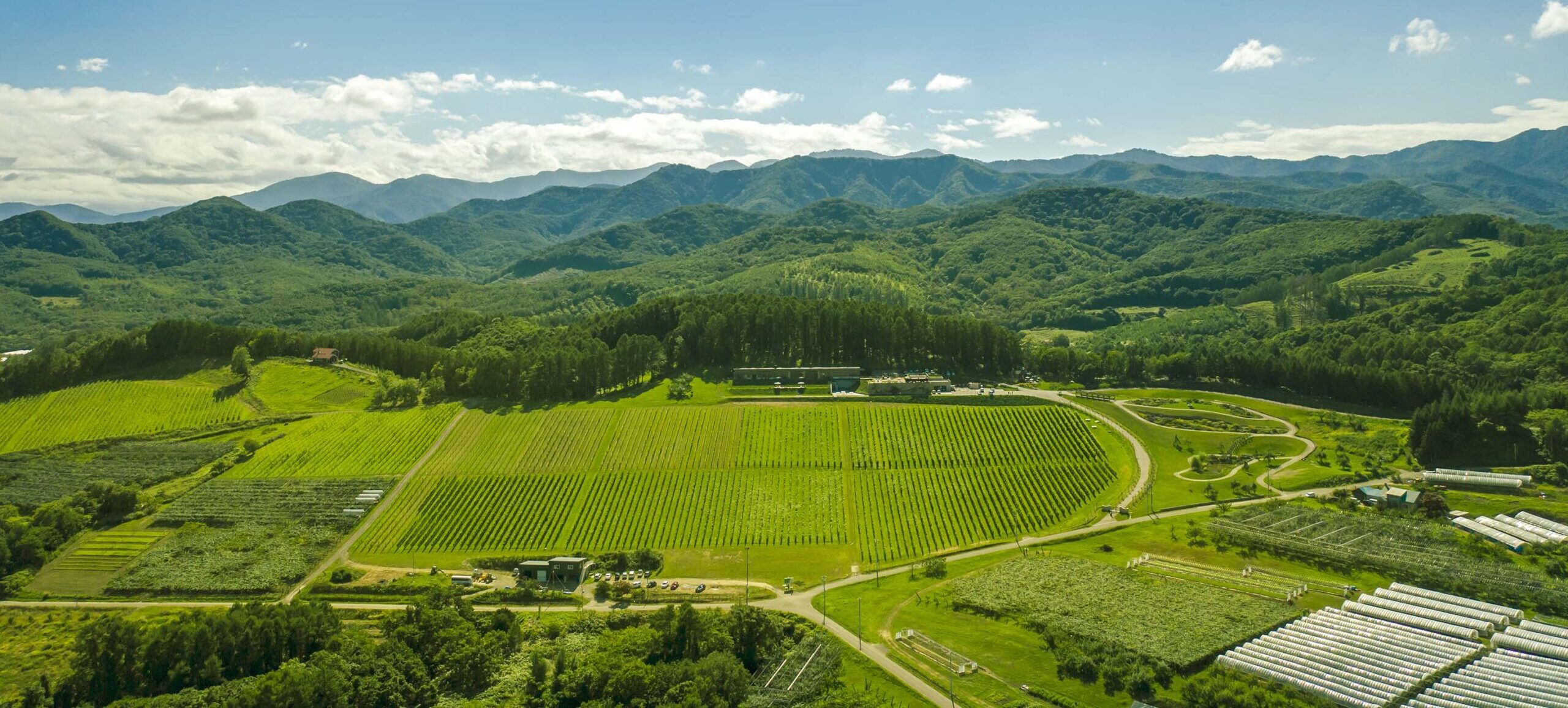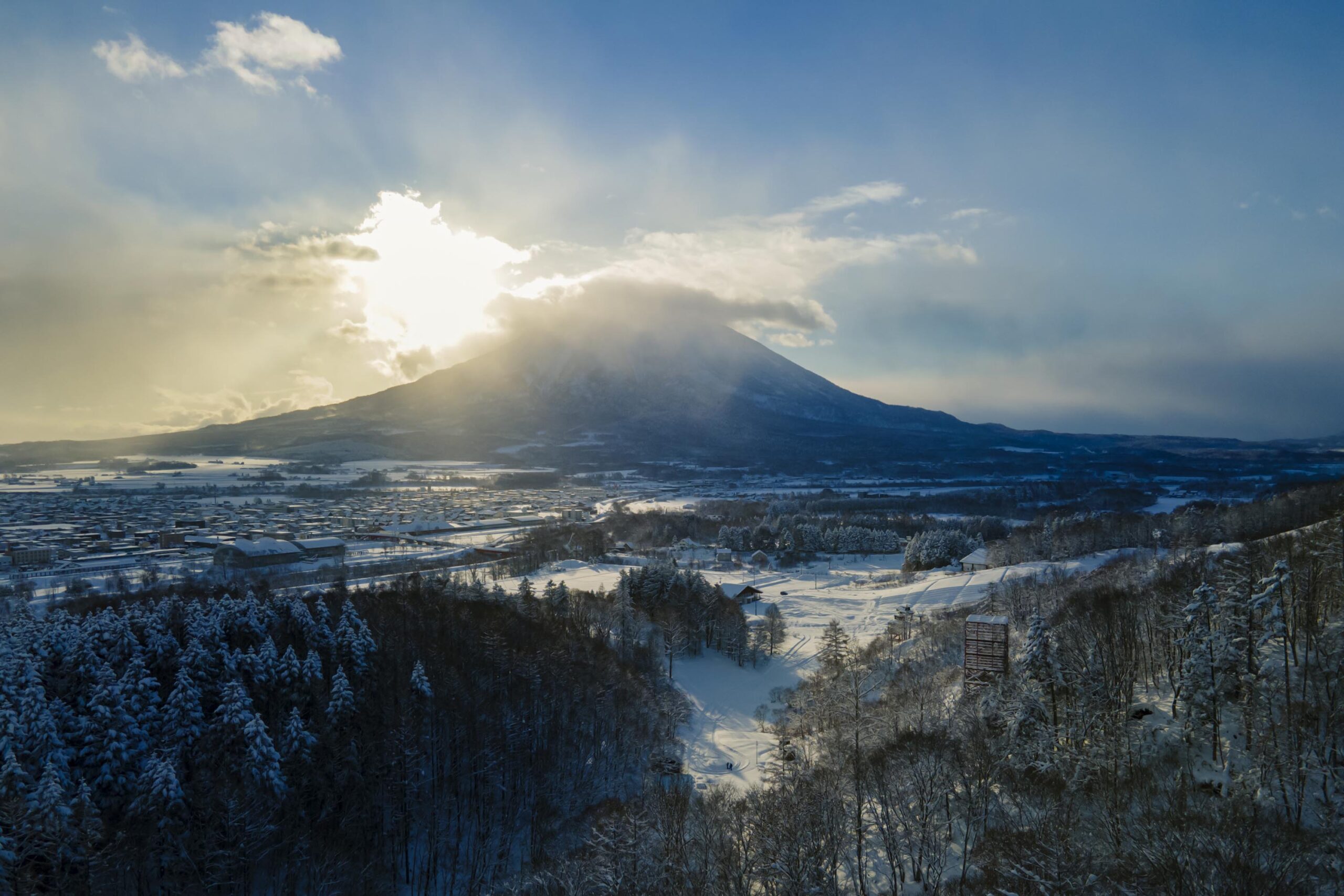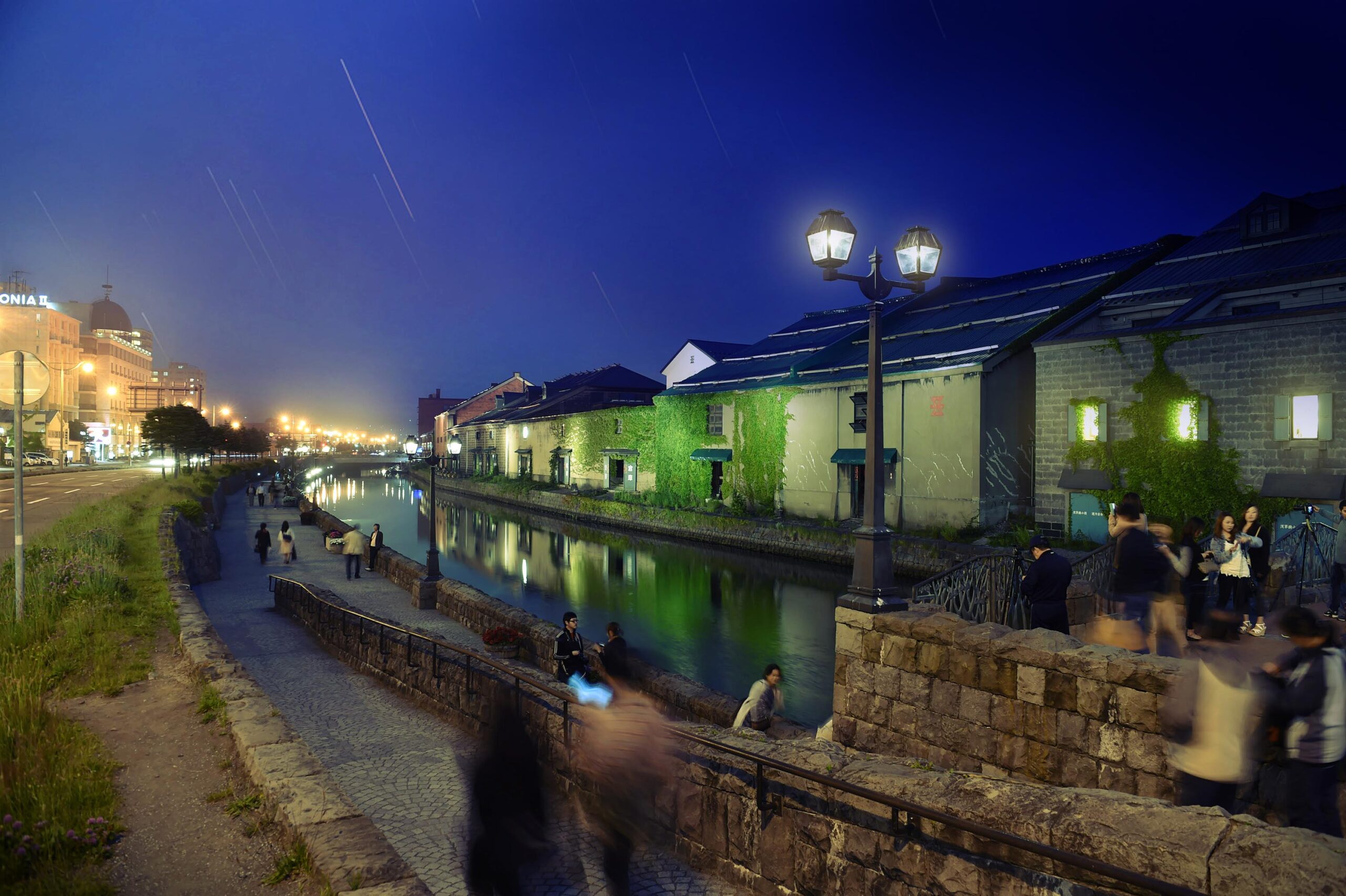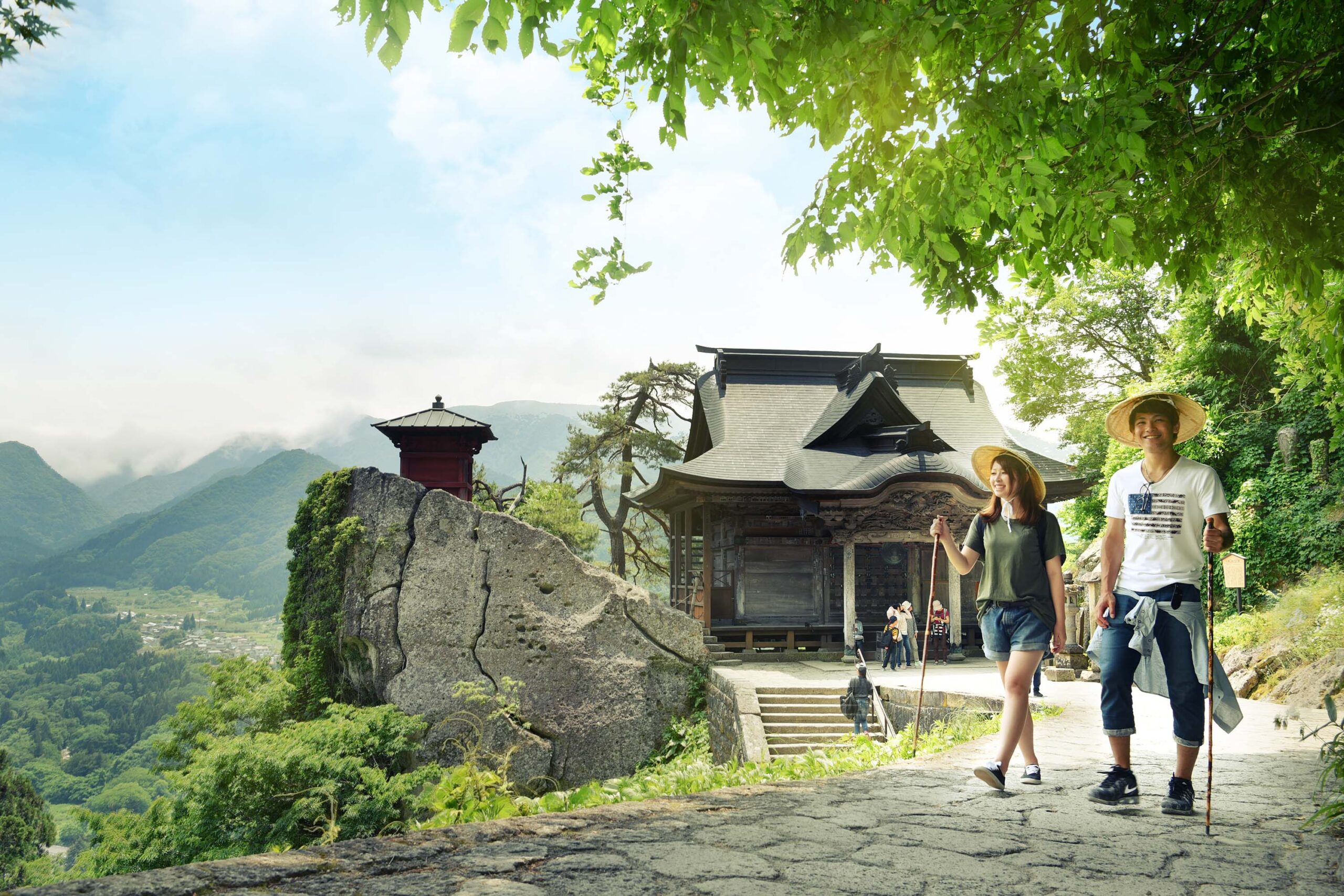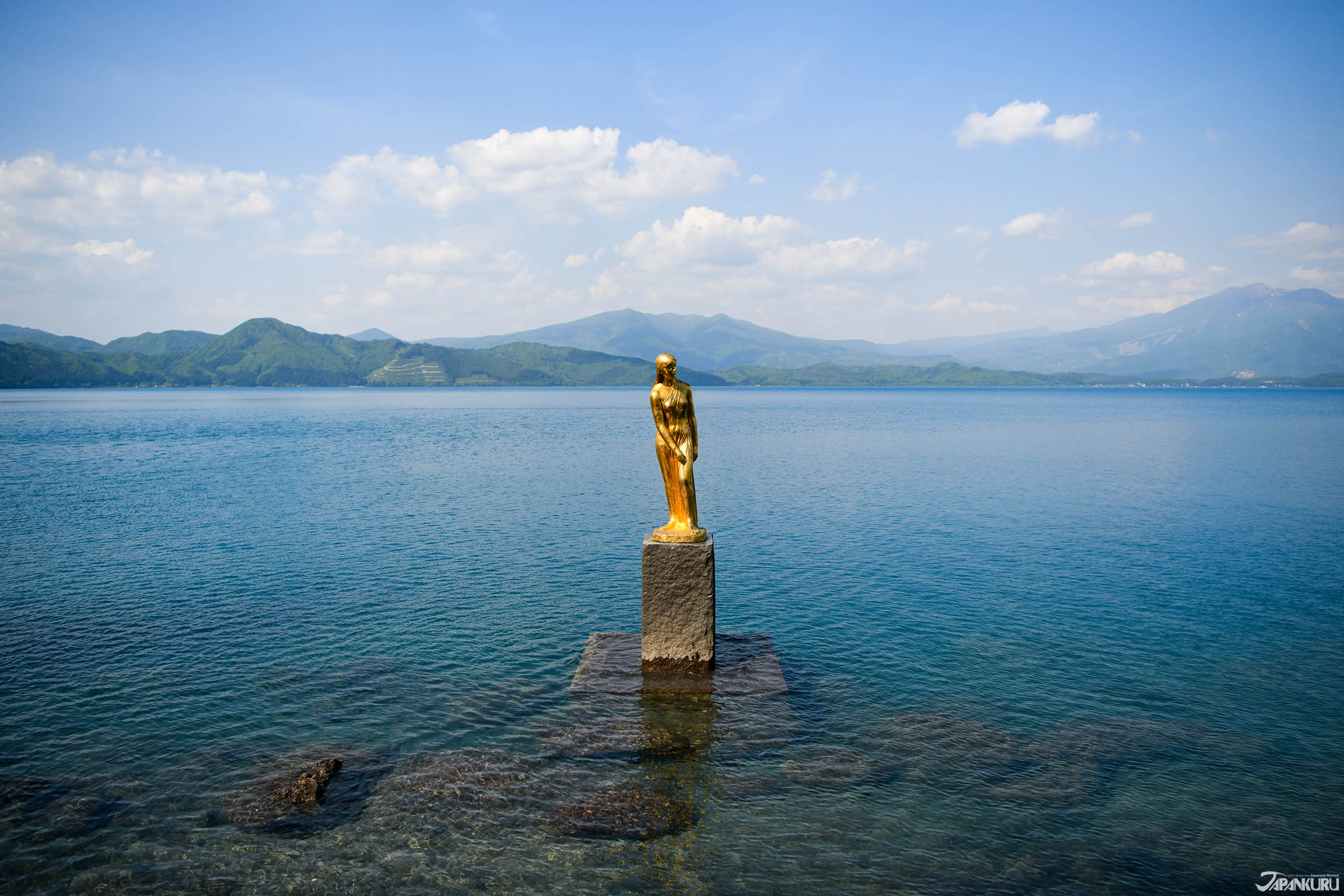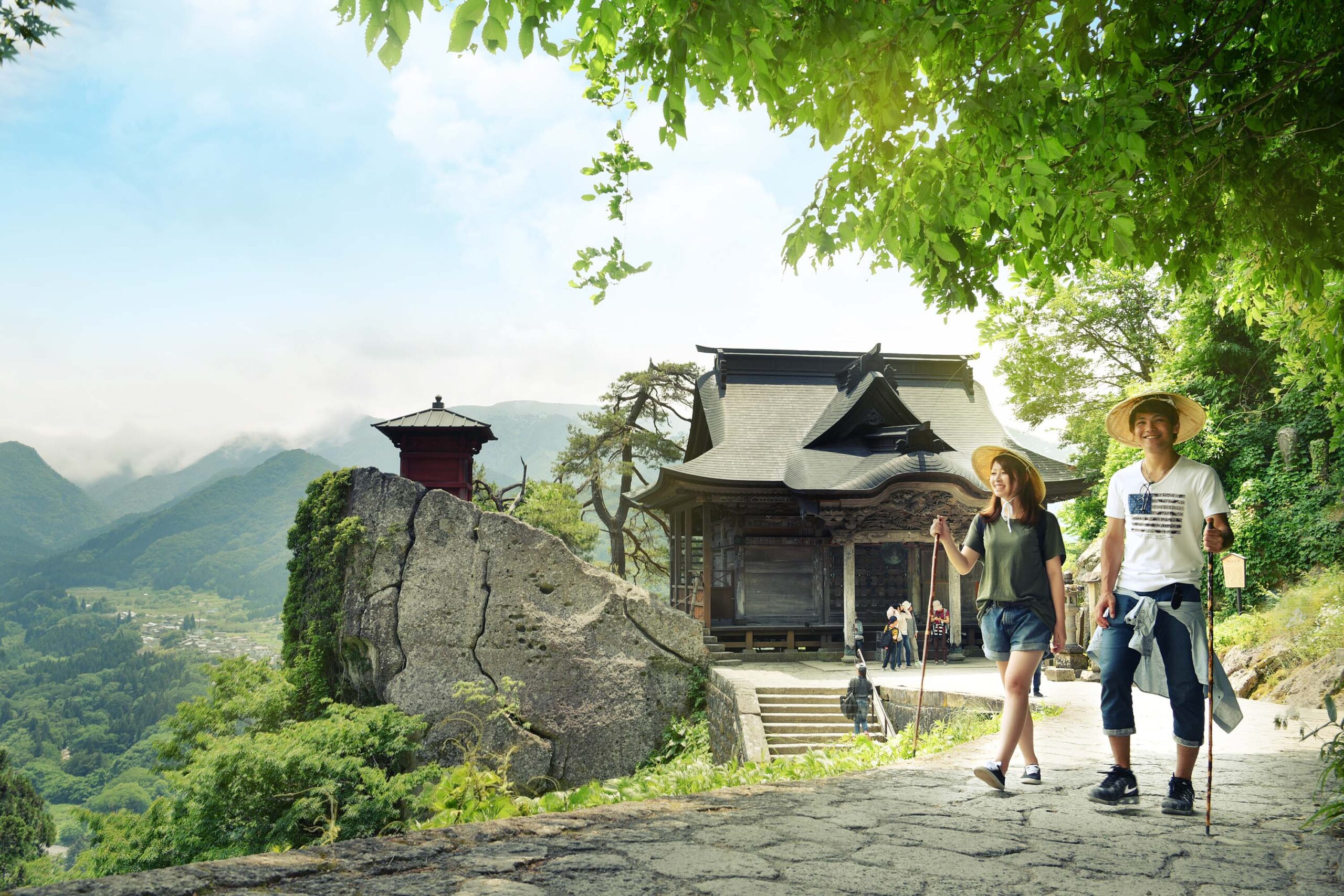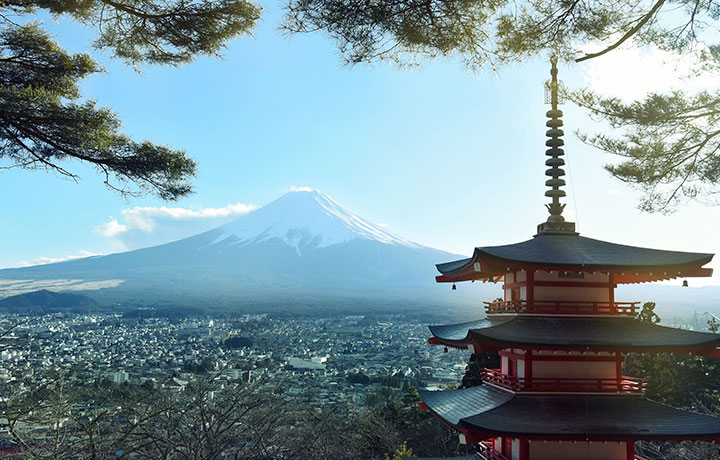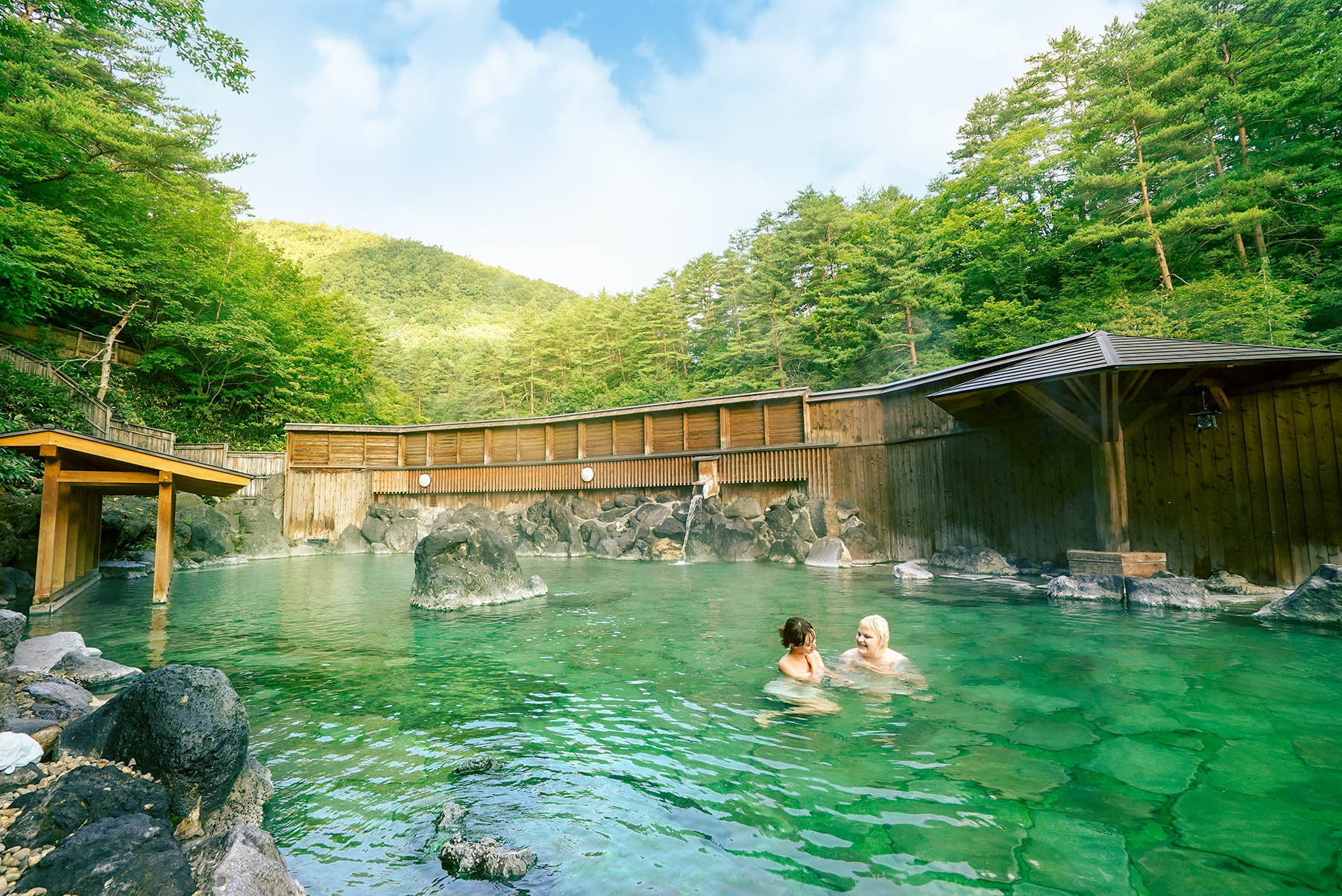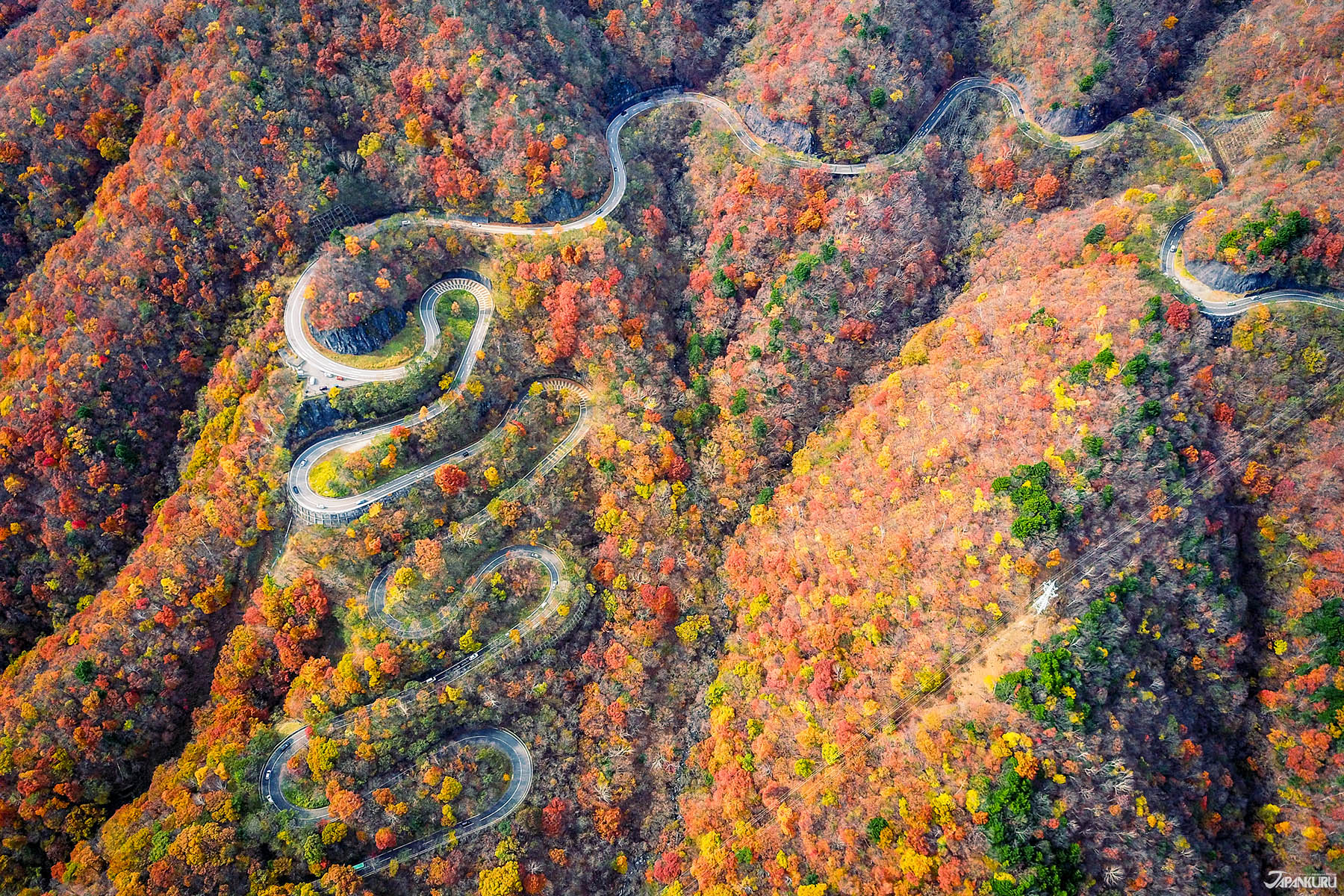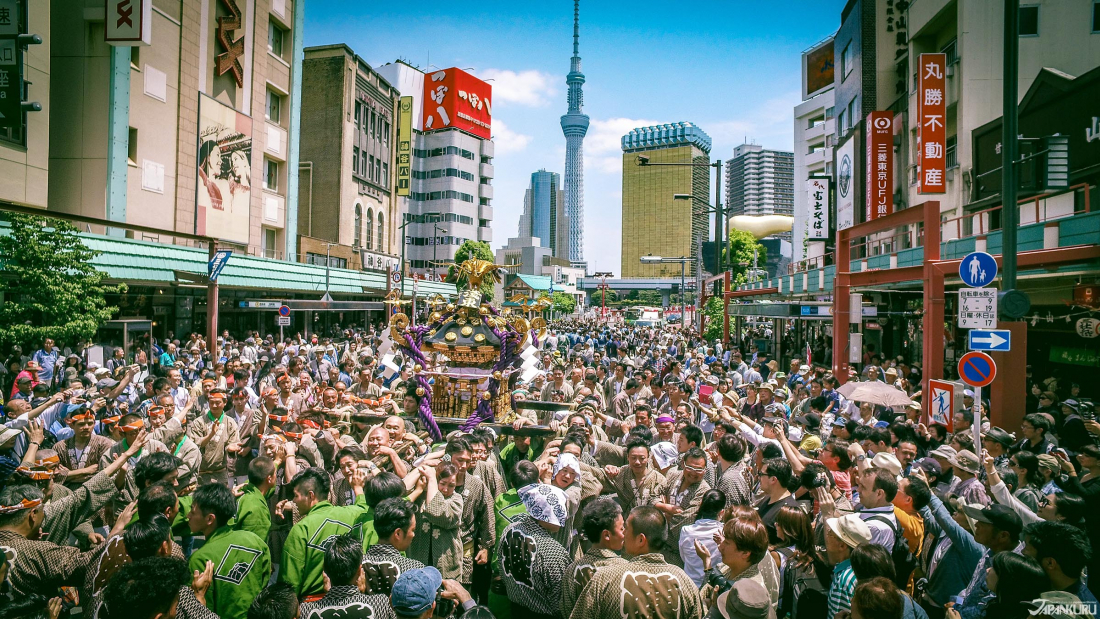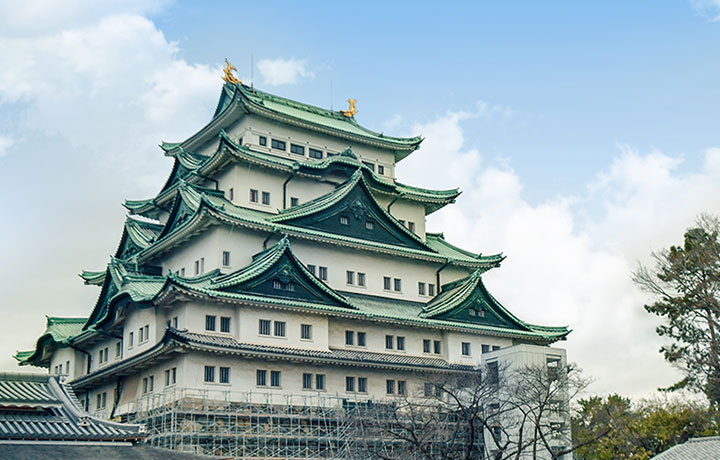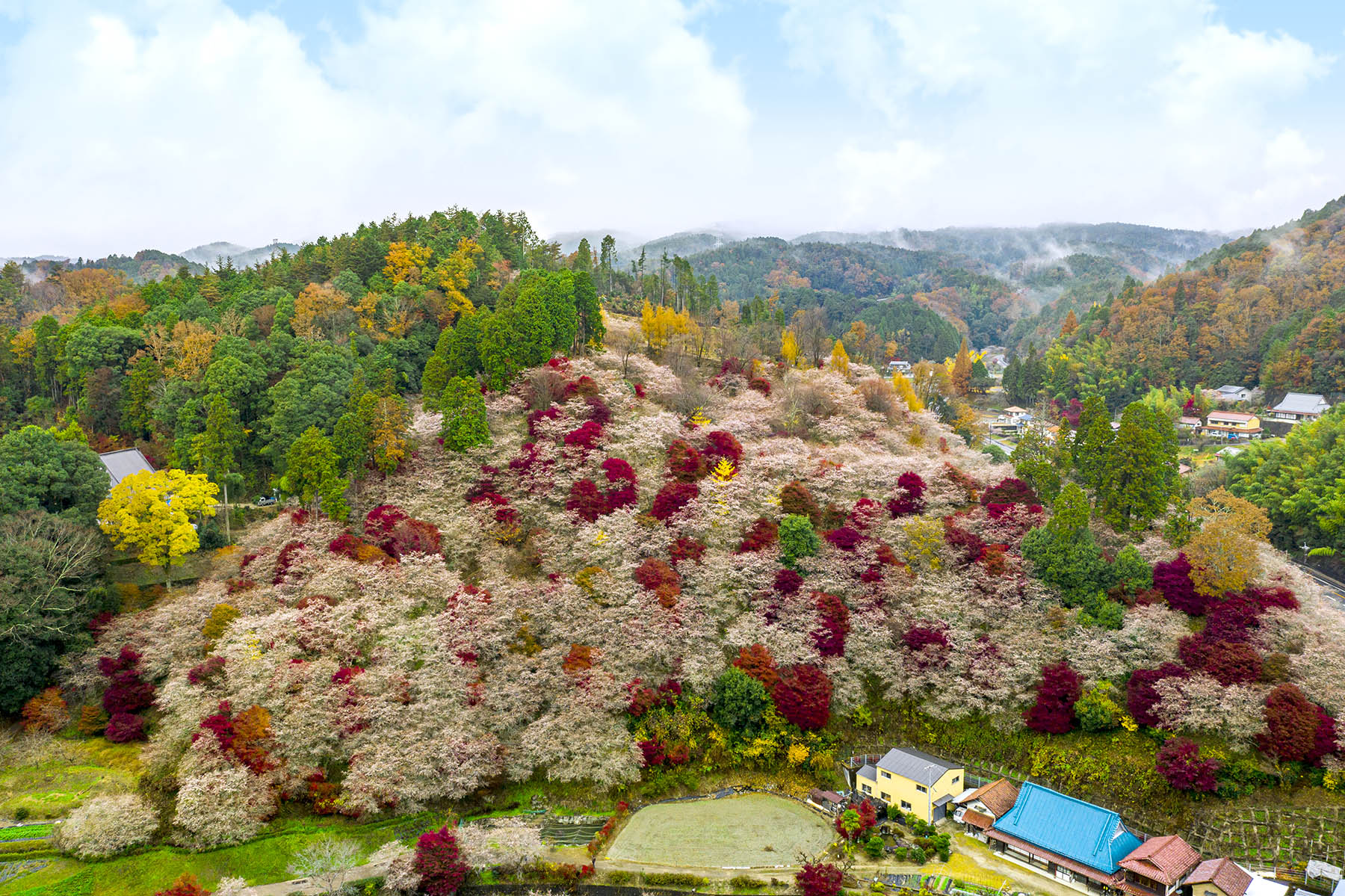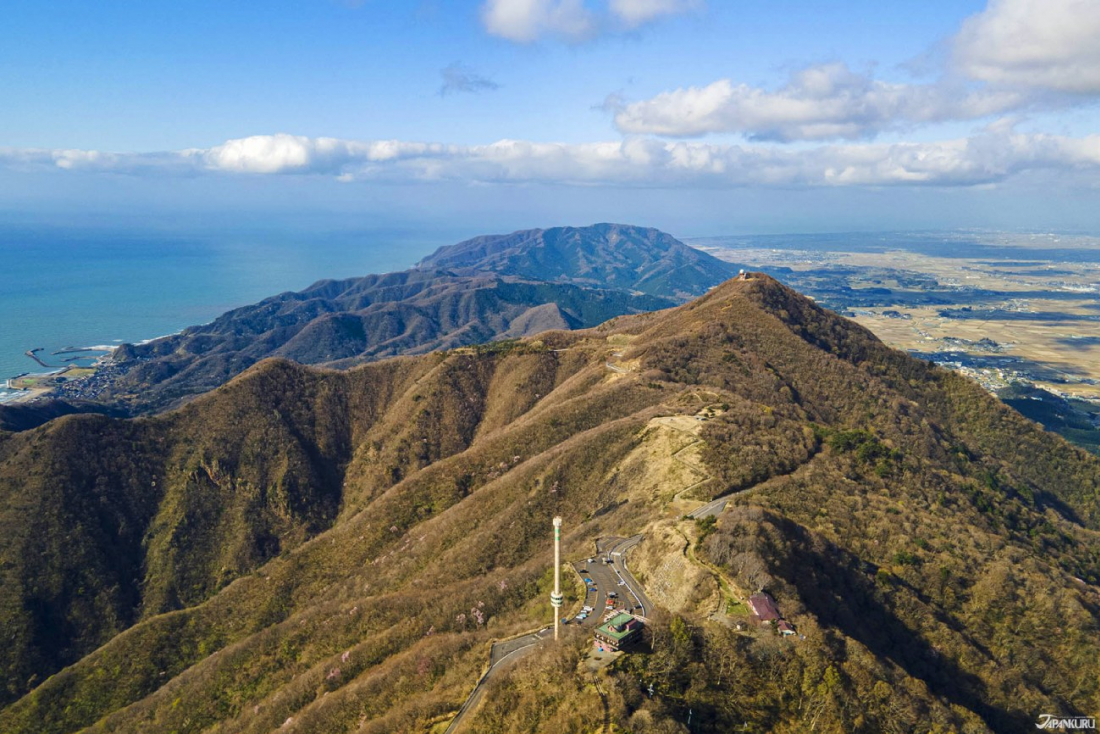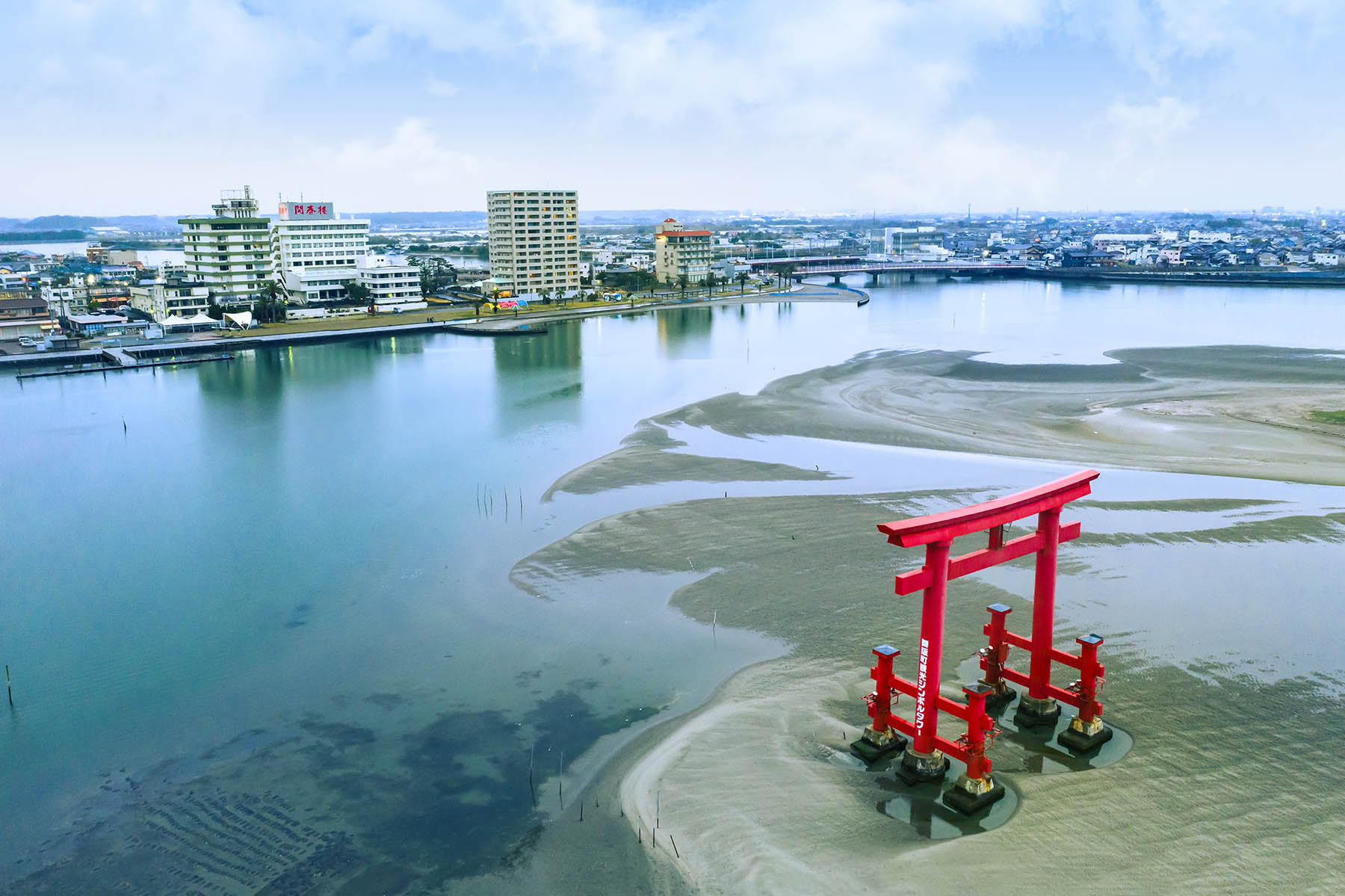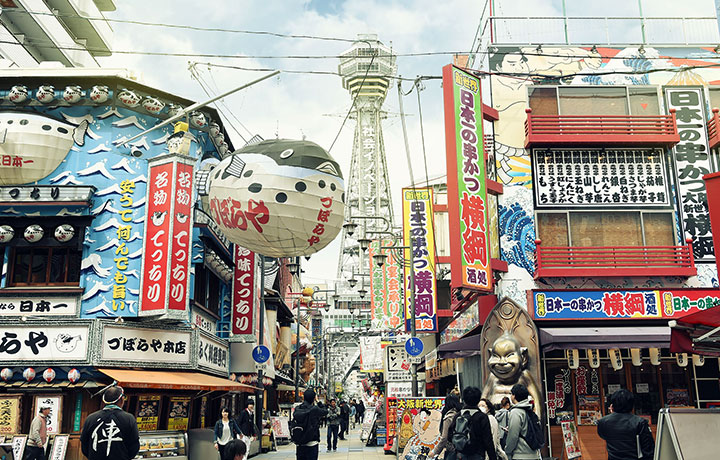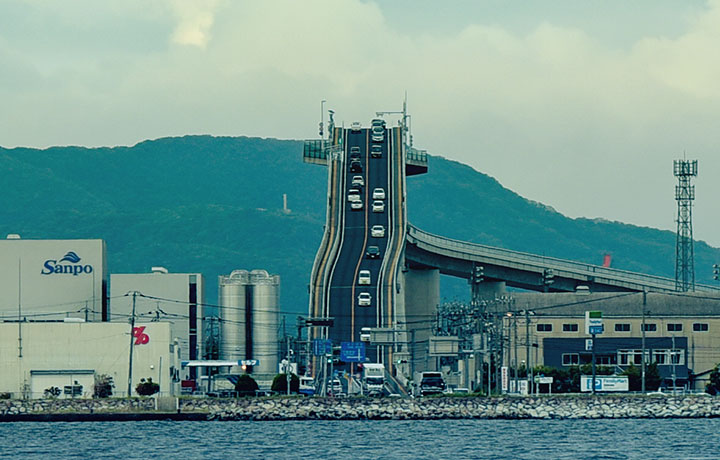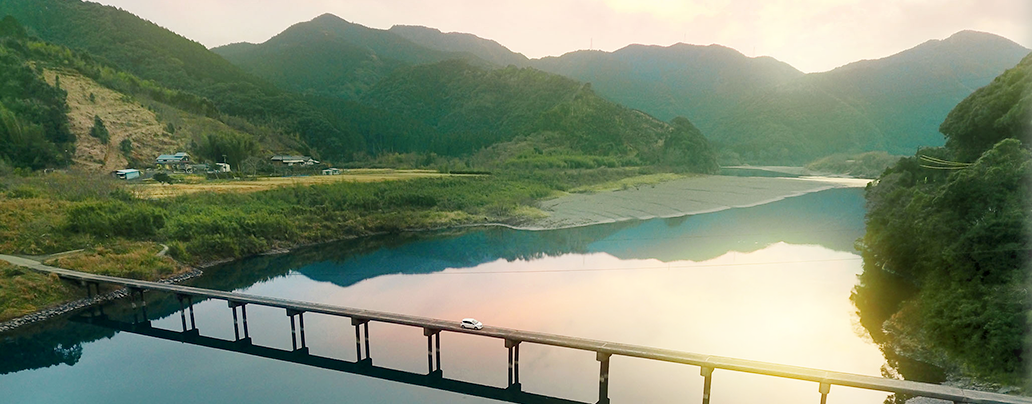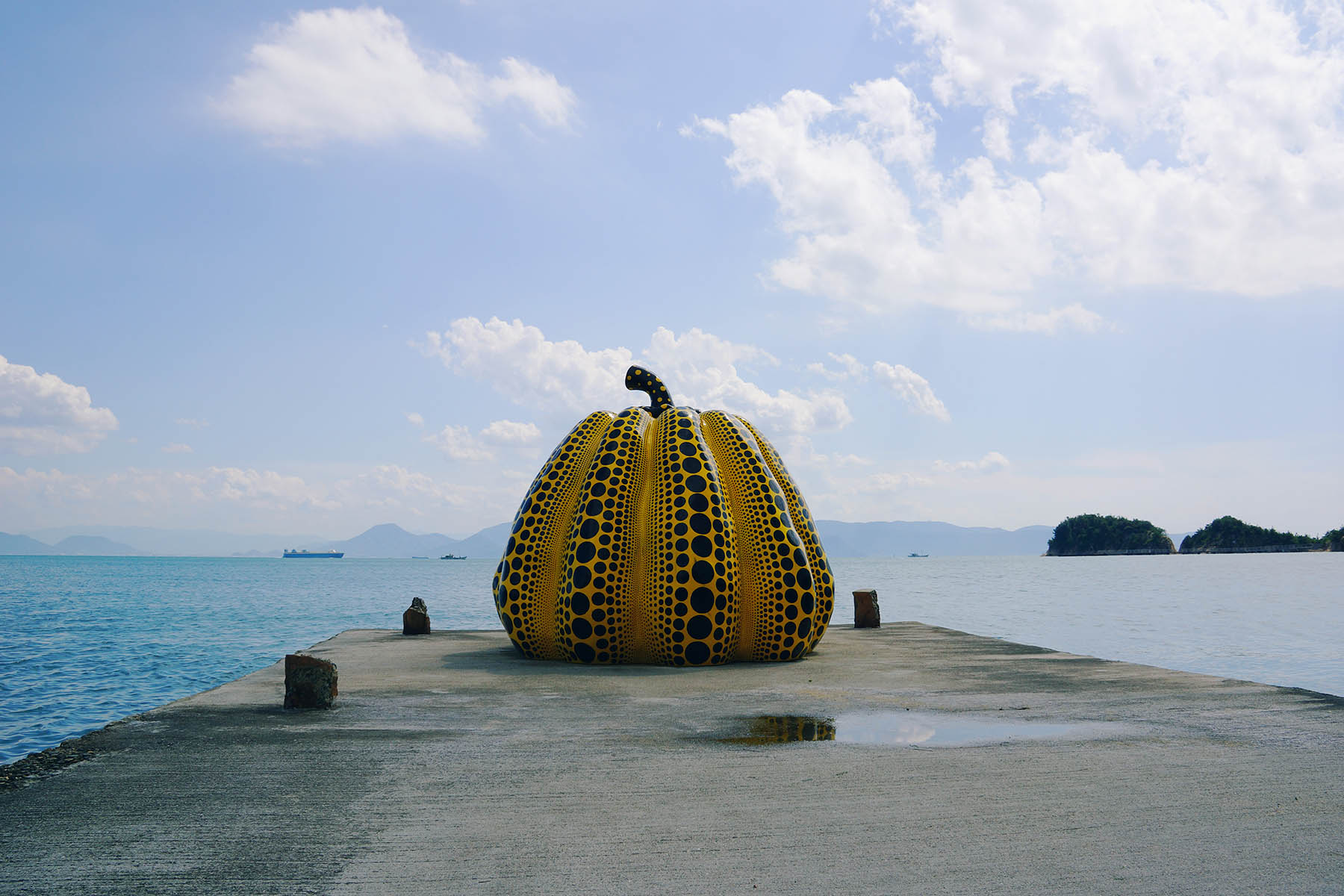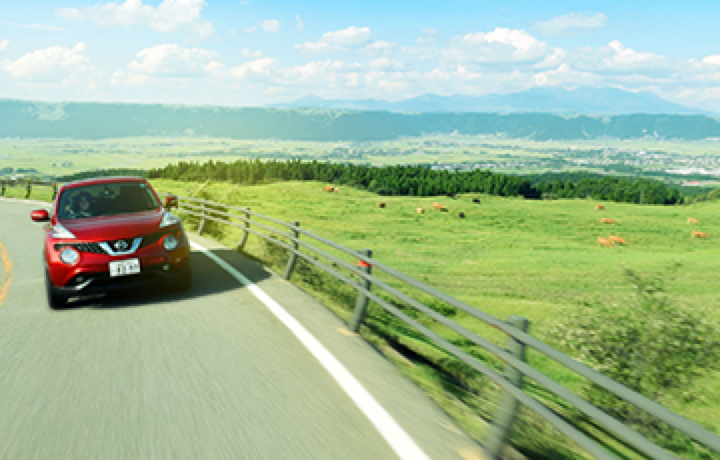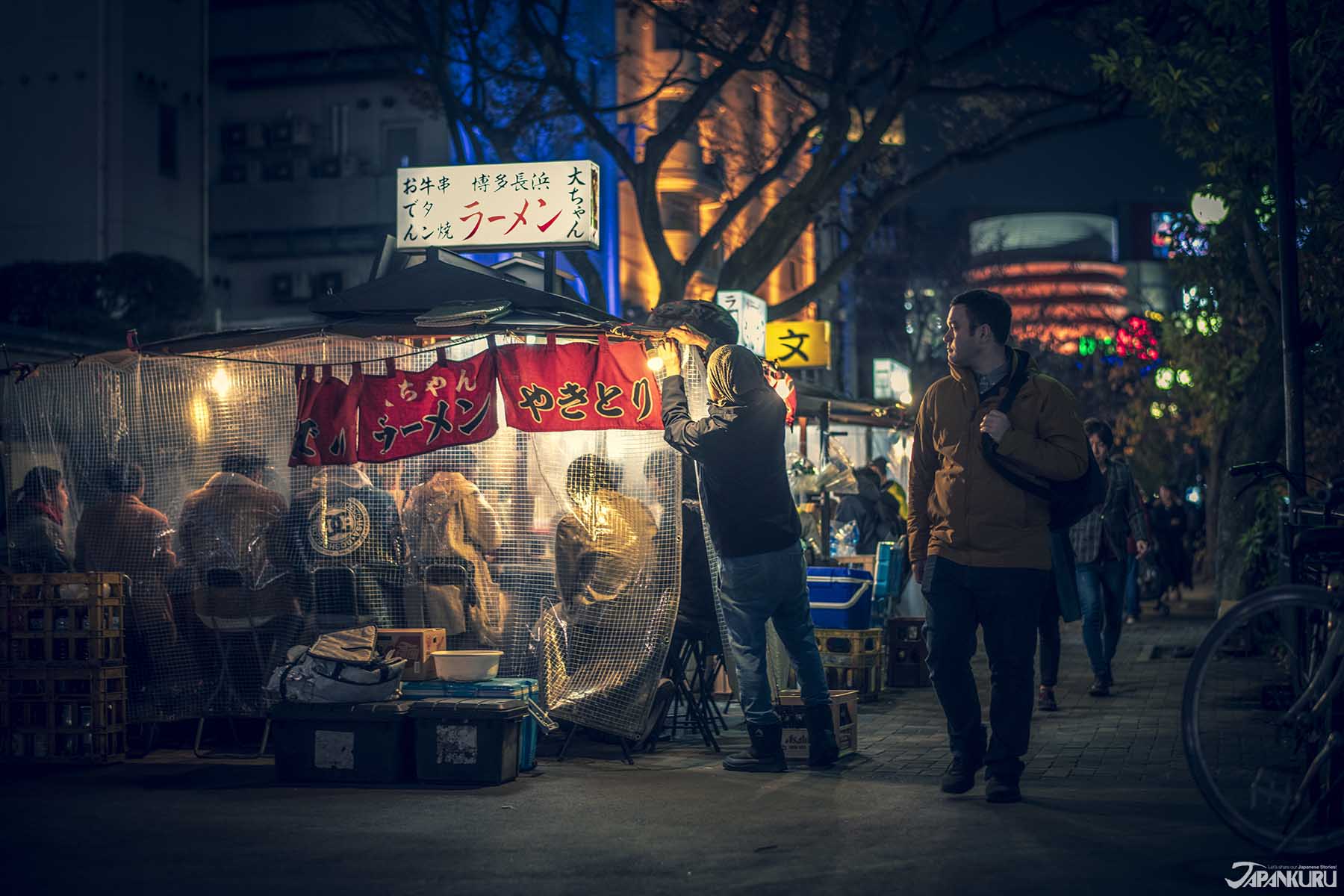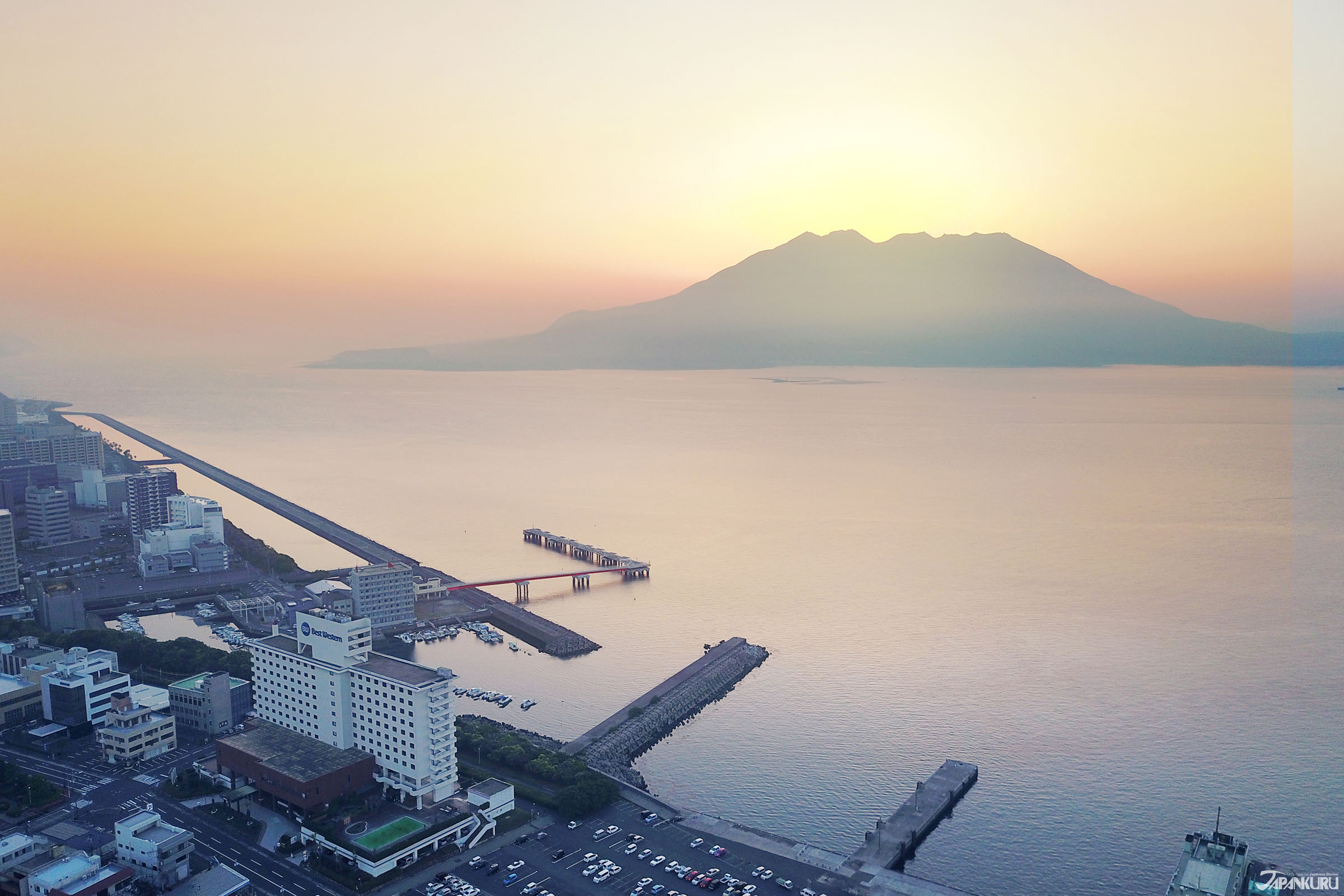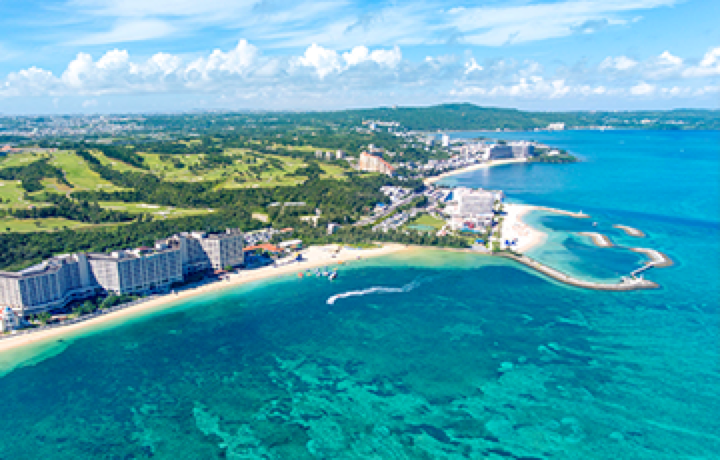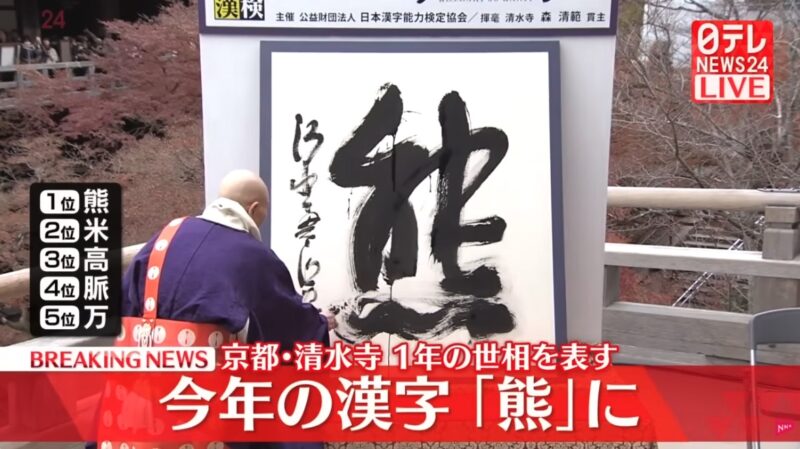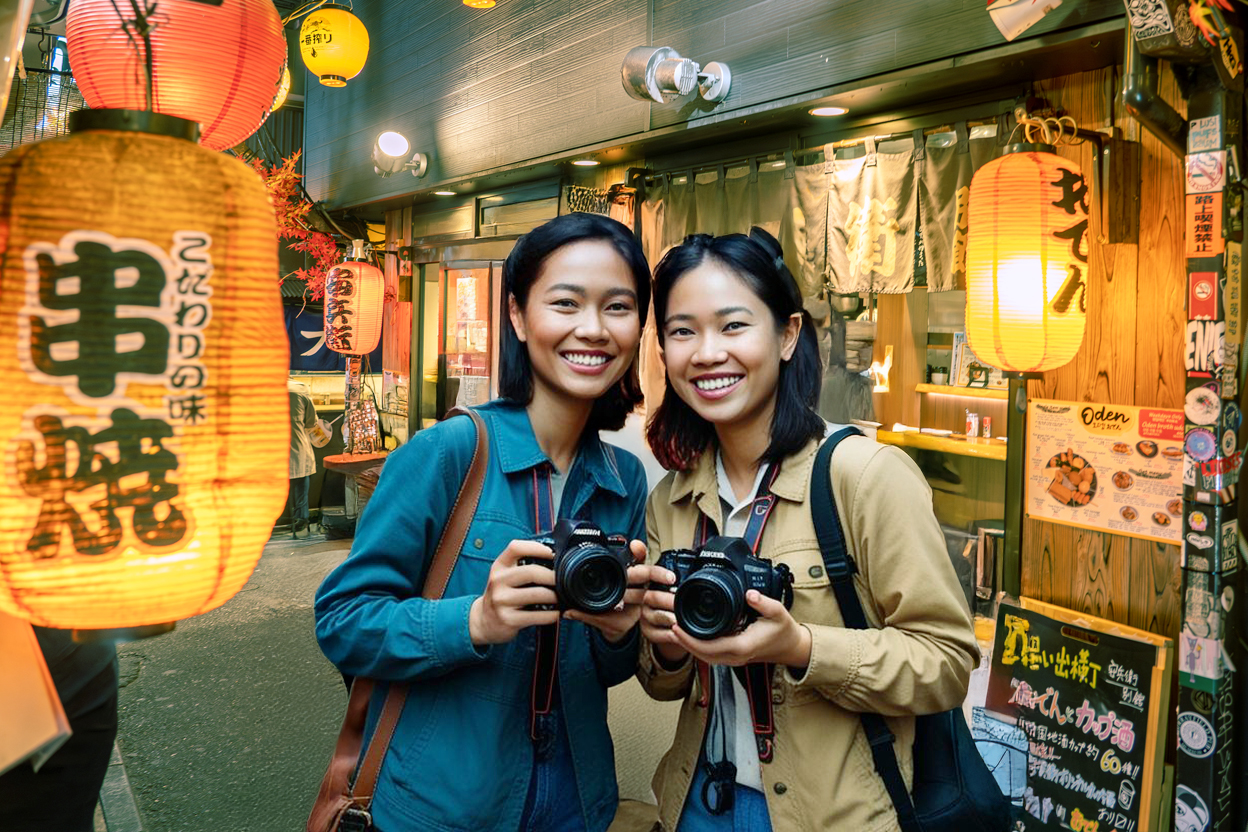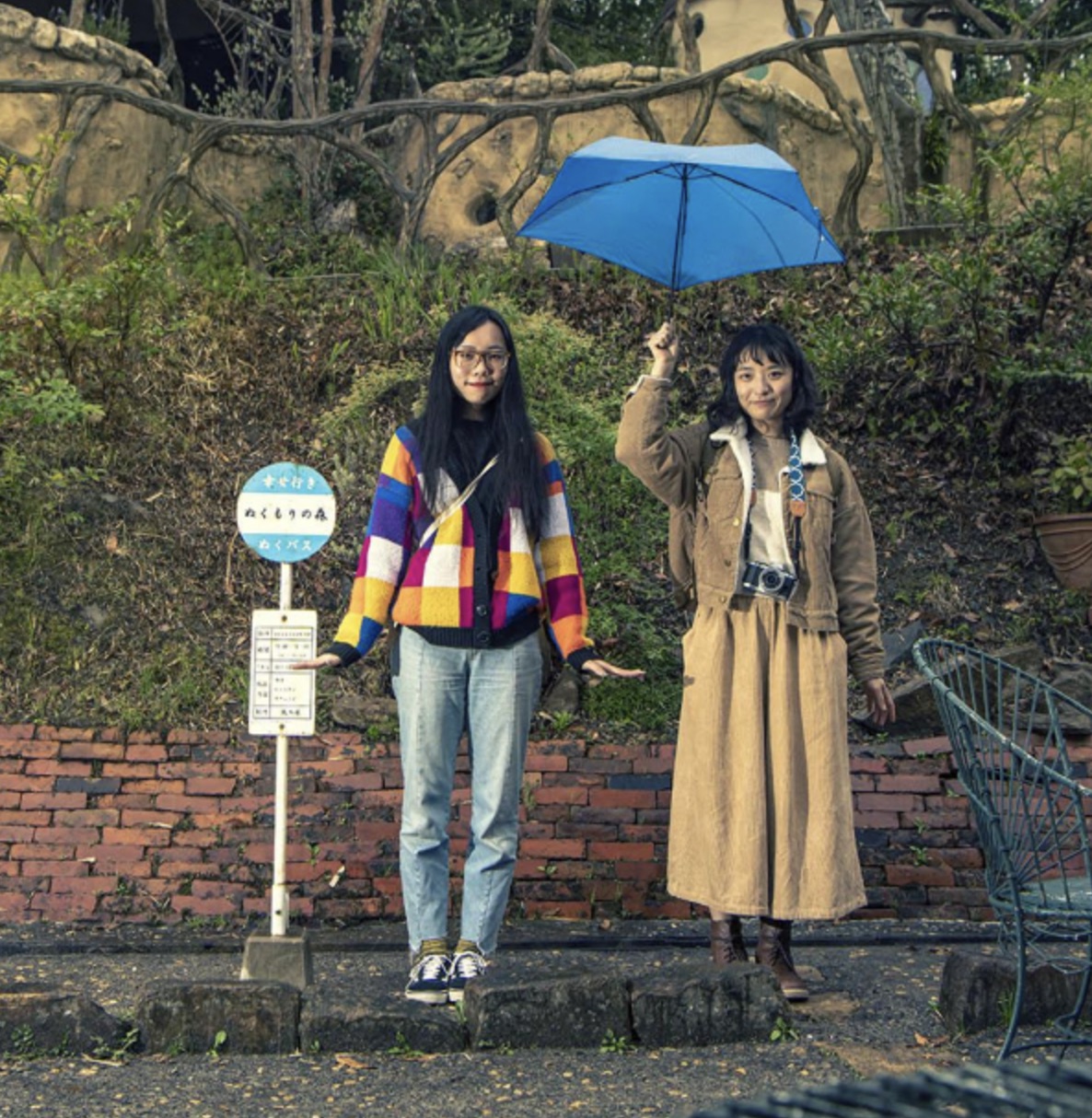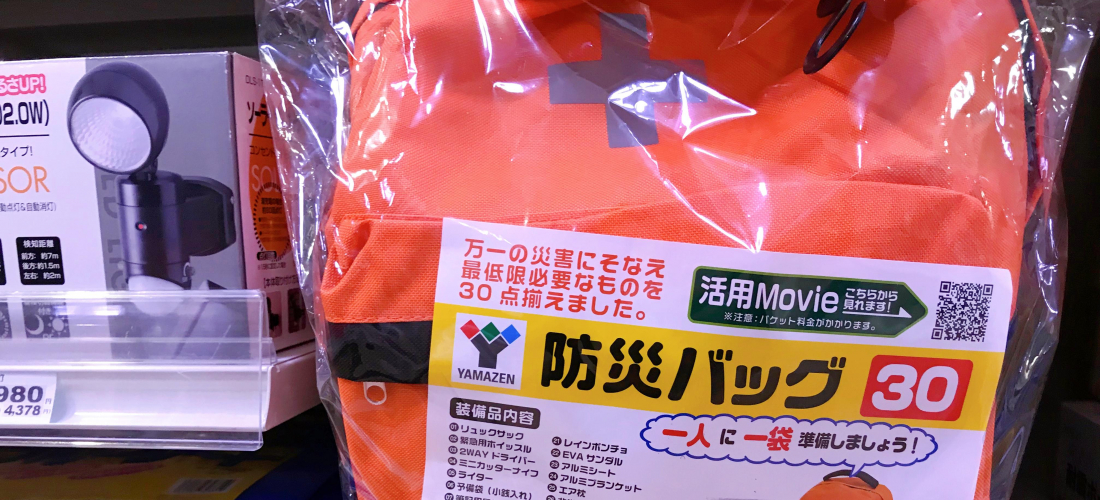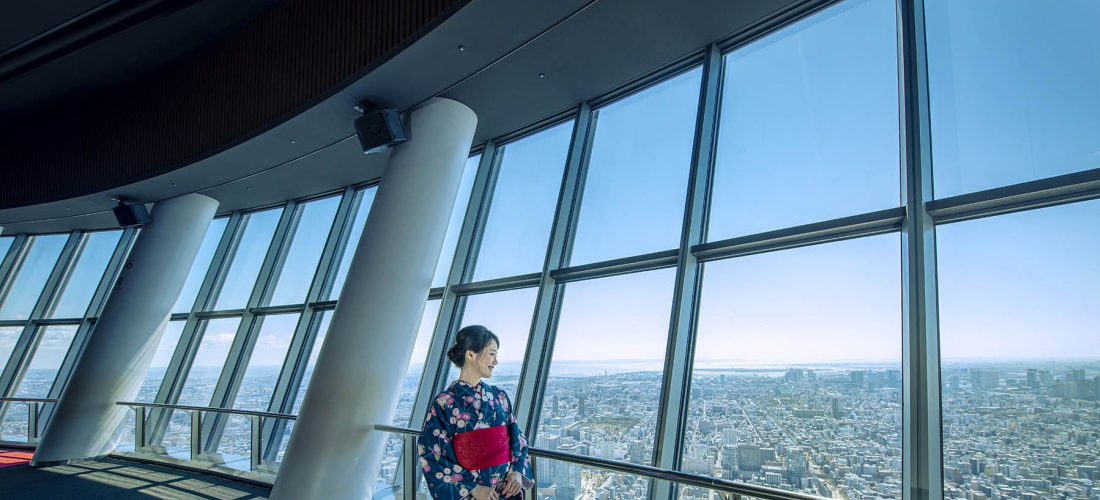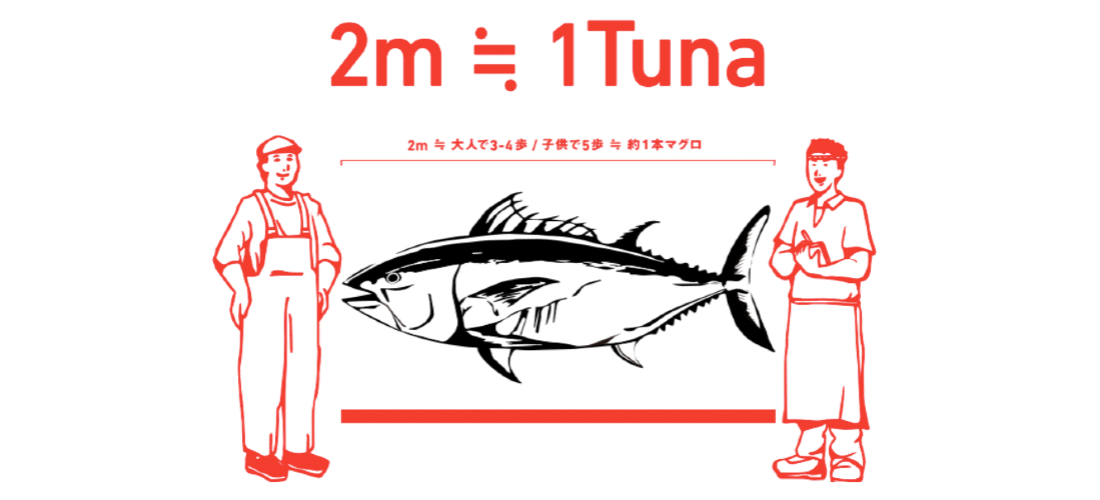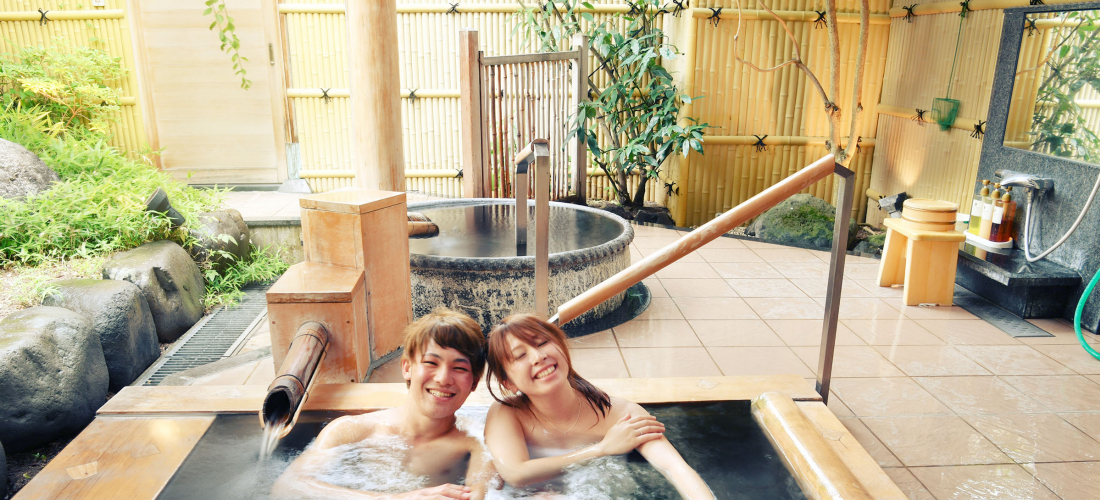CONTENTS
Worried about the recent earthquakes in Tokyo and Ishikawa? Here’s what to do when the ground starts to shake beneath you.
Worried About Earthquakes Interrupting Your Trip to Japan?
It’s a geological inevitability – Japan gets a lot of earthquakes. Check the records, and you’ll see that there are earthquakes around Japan just about every single day, and the occurrence of quakes and tsunamis is still pretty much unpredictable. So it’s understandable for anxious travelers to worry about what to do when the ground starts to tremble and buildings sway from side to side!
In fact, with several active faults shifting under and around the Japanese archipelago, the possibility of a particularly strong earthquake shaking up Tokyo – or the whole country – is always present. The truth is that most people growing up in Japan, after experiencing minor quakes on a regular basis, end up prepared for a major disaster. The likelihood of anything really dangerous happening during your time in Japan is low, but to keep yourself safe and ready, follow their lead with these safety tips!
Safety Tip 1: Get Off the Road
These days, more and more visitors traveling through Japan choose to use rental cars to explore the country. From within a vehicle, minor quakes are often so weak that you can’t even feel them. If the road really starts to quake so you can feel it (or if you get an earthquake alert on your phone), this is what to do first:
① Turn on your blinkers.
② Pull over to the side of the road.
If you get wind of an oncoming tsunami or a fire, it’s best practice to abandon the car and evacuate on foot. Too many people rushing in one direction in cars just brings everyone to a standstill, which is far from ideal when you need to move quickly! Emergency services will expect you to leave the keys in the ignition, or at least inside the car, in case they need to move the vehicle once you’re gone.
Safety Tip 2: Check for Tsunamis
If you feel the earth quaking, even gently, or if you hear a "J-Alert" (on your phone, on TV, or through speaker systems), you’ll want to get away from the coast. If there’s any sign of a tsunami coming (you can often check the likelihood on the Japan Meteorological Agency website), you’ll want to make it quick. Even a small tsunami can be extremely dangerous, and they can arrive much quicker than you’d expect. In most parts of Japan, there are signs indicating evacuation routes and tsunami danger levels at certain points on the ground, so keep an eye out for your own safety!
情報伝える「津波フラッグ」 制定3年でも導入半数 https://t.co/7AeqWFymwP
気象庁は再来年までに8割以上の導入を目指していて
— kaku_q (@kaku_q) May 1, 2023
In recent years, Japan has also introduced a tsunami warning system near the seashore using “tsunami flags.” Even if you don’t hear any warnings, if you see the red and white checkered flags waving at the beach, you’ll want to evacuate ASAP.
Safety Tip 3: Protect Your Head in Buildings
Most travelers in Japan spend a lot of time in urban spaces, so it’s important to know how to stay safe when surrounded by skyscrapers and shopping malls. If you’re outside, try to get somewhere out in the open, in case of falling debris (or dangerous damaged electrical lines). If you’re inside, you’ll want to keep away from glass, and protect your head with whatever you have available – even if that’s just a purse or a backpack.
Elevators in Japan are often plastered with warnings that you shouldn’t use them during earthquakes. If you happen to be inside one when an earthquake happens, you should immediately press every single button, and get off the elevator at the next floor that seems safe. If you get stuck inside, try using the intercom to call for help – your first order of business absolutely should not be to climb up through the ceiling or force the doors open, like they do in movies! If the intercom fails and you have access to a cellphone, try calling emergency services next. The number for the fire department is 119, and police can be reached at 110.
Safety Tip 4: Stay Updated
The most important natural disaster safety tip is probably to keep yourself updated on the situation. Fortunately, there are multiple sources of earthquake information that are perfect for tourists visiting Japan. The Safety Tips app made by the Japan Tourism Agency is specially developed just for tourists, offering automatic notifications for earthquakes, tsunamis, volcanic eruptions, and more, along with helpful Japanese tips for when you want to ask locals what’s going on. The Japan Meteorological Agency homepage also has detailed updates in a number of languages, with similar weather and earthquake information, including helpful maps for typhoons. Have the two ready on your phone for useful resources right at your fingertips.
Enjoy Japan with a Little Peace of Mind
The last thing you want when exploring the beauty of Japan is to be distracted by the possibility of natural disasters. The active faults that cause Japan’s earthquakes (and volcanic eruptions) are, at the same time, the very source of Japan’s beautiful landscape and luxurious natural hot springs. So instead, prepare yourself with some basic resources, make sure you know the basics of what to do when disaster strikes, and then relax and enjoy the trip equipped with all your new-found knowledge!
For more info and updates from Japan, check Japankuru for new articles, and don't forget to follow us on Twitter, Instagram, and Facebook!
The latest news from Japan - learn what's new in the land of the rising sun, from an international group right on the scene.
COMMENT
FEATURED MEDIA
VIEW MORE 
A New Tokyo Animal Destination: Relax & Learn About the World’s Animals in Japan
#pr #japankuru #anitouch #anitouchtokyodome #capybara #capybaracafe #animalcafe #tokyotrip #japantrip #카피바라 #애니터치 #아이와가볼만한곳 #도쿄여행 #가족여행 #東京旅遊 #東京親子景點 #日本動物互動體驗 #水豚泡澡 #東京巨蛋城 #เที่ยวญี่ปุ่น2025 #ที่เที่ยวครอบครัว #สวนสัตว์ในร่ม #TokyoDomeCity #anitouchtokyodome

Shohei Ohtani Collab Developed Products & Other Japanese Drugstore Recommendations From Kowa
#pr #japankuru
#kowa #syncronkowa #japanshopping #preworkout #postworkout #tokyoshopping #japantrip #일본쇼핑 #일본이온음료 #오타니 #오타니쇼헤이 #코와 #興和 #日本必買 #日本旅遊 #運動補充能量 #運動飲品 #ช้อปปิ้งญี่ปุ่น #เครื่องดื่มออกกำลังกาย #นักกีฬา #ผลิตภัณฑ์ญี่ปุ่น #อาหารเสริมญี่ปุ่น

도쿄 근교 당일치기 여행 추천! 작은 에도라 불리는 ‘가와고에’
세이부 ‘가와고에 패스(디지털)’ 하나면 편리하게 이동 + 가성비까지 완벽하게! 필름카메라 감성 가득한 레트로 거리 길거리 먹방부터 귀여움 끝판왕 핫플&포토 스폿까지 총집합!
Looking for day trips from Tokyo? Try Kawagoe, AKA Little Edo!
Use the SEIBU KAWAGOE PASS (Digital) for easy, affordable transportation!
Check out the historic streets of Kawagoe for some great street food and plenty of picturesque retro photo ops.
#pr #japankuru #도쿄근교여행 #가와고에 #가와고에패스 #세이부패스 #기모노체험 #가와고에여행 #도쿄여행코스 #도쿄근교당일치기 #세이부가와고에패스
#tokyotrip #kawagoe #tokyodaytrip #seibukawagoepass #kimono #japantrip

Hirakata Park, Osaka: Enjoy the Classic Japanese Theme Park Experience!
#pr #japankuru #hirakatapark #amusementpark #japantrip #osakatrip #familytrip #rollercoaster #retrôvibes #枚方公園 #大阪旅遊 #關西私房景點 #日本親子旅行 #日本遊樂園 #木造雲霄飛車 #히라카타파크 #สวนสนุกฮิราคาตะพาร์ค

🍵Love Matcha? Upgrade Your Matcha Experience With Tsujiri!
・160년 전통 일본 말차 브랜드 츠지리에서 말차 덕후들이 픽한 인기템만 골라봤어요
・抹茶控的天堂!甜點、餅乾、飲品一次滿足,連伴手禮都幫你列好清單了
・ส่องมัทฉะสุดฮิต พร้อมพาเที่ยวร้านดังในอุจิ เกียวโต
#pr #japankuru #matcha #matchalover #uji #kyoto #japantrip #ujimatcha #matchalatte #matchasweets #tsujiri #말차 #말차덕후 #츠지리 #교토여행 #말차라떼 #辻利抹茶 #抹茶控 #日本抹茶 #宇治 #宇治抹茶 #日本伴手禮 #抹茶拿鐵 #抹茶甜點 #มัทฉะ #ของฝากญี่ปุ่น #ชาเขียวญี่ปุ่น #ซึจิริ #เกียวโต

・What Is Nenaito? And How Does This Sleep Care Supplement Work?
・你的睡眠保健品——認識「睡眠茶氨酸錠」
・수면 케어 서플리먼트 ‘네나이토’란?
・ผลิตภัณฑ์เสริมอาหารดูแลการนอน “Nenaito(ネナイト)” คืออะไร?
#pr #japankuru #sleepcare #japanshopping #nenaito #sleepsupplement #asahi #睡眠茶氨酸錠 #睡眠保健 #朝日 #l茶胺酸 #日本藥妝 #日本必買 #일본쇼핑 #수면 #건강하자 #네나이토 #일본영양제 #อาหารเสริมญี่ปุ่น #ช้อปปิ้งญี่ปุ่น #ร้านขายยาญี่ปุ่น #ดูแลตัวเองก่อนนอน #อาซาฮิ

Japanese Drugstore Must-Buys! Essential Items from Hisamitsu® Pharmaceutical
#PR #japankuru #hisamitsu #salonpas #feitas #hisamitsupharmaceutical #japanshopping #tokyoshopping #traveltips #japanhaul #japantrip #japantravel

Whether you grew up with Dragon Ball or you just fell in love with Dragon Ball DAIMA, you'll like the newest JINS collab. Shop this limited-edition Dragon Ball accessory collection to find some of the best Dragon Ball merchandise in Japan!
>> Find out more at Japankuru.com! (link in bio)
#japankuru #dragonball #dragonballdaima #animecollab #japanshopping #jins #japaneseglasses #japantravel #animemerch #pr

This month, Japankuru teamed up with @official_korekoko to invite three influencers (originally from Thailand, China, and Taiwan) on a trip to Yokohama. Check out the article (in Chinese) on Japankuru.com for all of their travel tips and photography hints - and look forward to more cool collaborations coming soon!
【橫濱夜散策 x 教你怎麼拍出網美照 📸✨】
每次來日本玩,是不是都會先找旅日網紅的推薦清單?
這次,我們邀請擁有日本豐富旅遊經驗的🇹🇭泰國、🇨🇳中國、🇹🇼台灣網紅,帶你走進夜晚的橫濱!從玩樂路線到拍照技巧,教你怎麼拍出最美的夜景照。那些熟悉的景點,換個視角說不定會有新發現~快跟他們一起出發吧!
#japankuru #橫濱紅磚倉庫 #汽車道 #中華街 #yokohama #japankuru #橫濱紅磚倉庫 #汽車道 #中華街 #yokohama #yokohamaredbrickwarehouse #yokohamachinatown

If you’re a fan of Vivienne Westwood's Japanese designs, and you’re looking forward to shopping in Harajuku this summer, we’ve got important news for you. Vivienne Westwood RED LABEL Laforet Harajuku is now closed for renovations - but the grand reopening is scheduled for July!
>> Find out more at Japankuru.com! (link in bio)
#japankuru #viviennewestwood #harajuku #omotesando #viviennewestwoodredlabel #viviennewestwoodjapan #비비안웨스트우드 #오모테산도 #하라주쿠 #日本購物 #薇薇安魏斯伍德 #日本時尚 #原宿 #表參道 #japantrip #japanshopping #pr

Ready to see TeamLab in Kyoto!? At TeamLab Biovortex Kyoto, the collective is taking their acclaimed immersive art and bringing it to Japan's ancient capital. We can't wait to see it for ourselves this autumn!
>> Find out more at Japankuru.com! (link in bio)
#japankuru #teamlab #teamlabbiovortex #kyoto #kyototrip #japantravel #artnews
Photos courtesy of teamLab, Exhibition view of teamLab Biovortex Kyoto, 2025, Kyoto ® teamLab, courtesy Pace Gallery

Japanese Makeup Shopping • A Trip to Kamakura & Enoshima With Canmake’s Cool-Toned Summer Makeup
#pr #canmake #enoshima #enoden #에노시마 #캔메이크 #japanesemakeup #japanesecosmetics

⚔️The Robot Restaurant is gone, but the Samurai Restaurant is here to take its place. Check it out, and don't forget your coupon!
🍣신주쿠의 명소 로봇 레스토랑이 사무라이 레스토랑으로 부활! 절찬 쿠폰 발급중
💃18歲以上才能入場的歌舞秀,和你想的不一樣!拿好優惠券去看看~
#tokyo #shinjuku #samurairestaurant #robotrestaurant #tokyotrip #도쿄여행 #신주쿠 #사무라이레스토랑 #이색체험 #할인이벤트 #歌舞伎町 #東京景點 #武士餐廳 #日本表演 #日本文化體驗 #japankuru #japantrip #japantravel #japanlovers #japan_of_insta

Japanese appliance & electronics shopping with our KOJIMA x BicCamera coupon!
用JAPANKURU的KOJIMA x BicCamera優惠券買這些正好❤️
코지마 x 빅 카메라 쿠폰으로 일본 가전 제품 쇼핑하기
#pr #japankuru #japanshopping #kojima #biccamera #japaneseskincare #yaman #dji #osmopocket3 #skincaredevice #日本購物 #美容儀 #相機 #雅萌 #日本家電 #일본여행 #면세 #여행꿀팁 #일본쇼핑리스트 #쿠폰 #일본쇼핑 #일본브랜드 #할인 #코지마 #빅카메라 #japankurucoupon
MAP OF JAPAN
SEARCH BY REGION

LATEST
VIEW MOREEVENT CALENDAR
VIEW MORE






